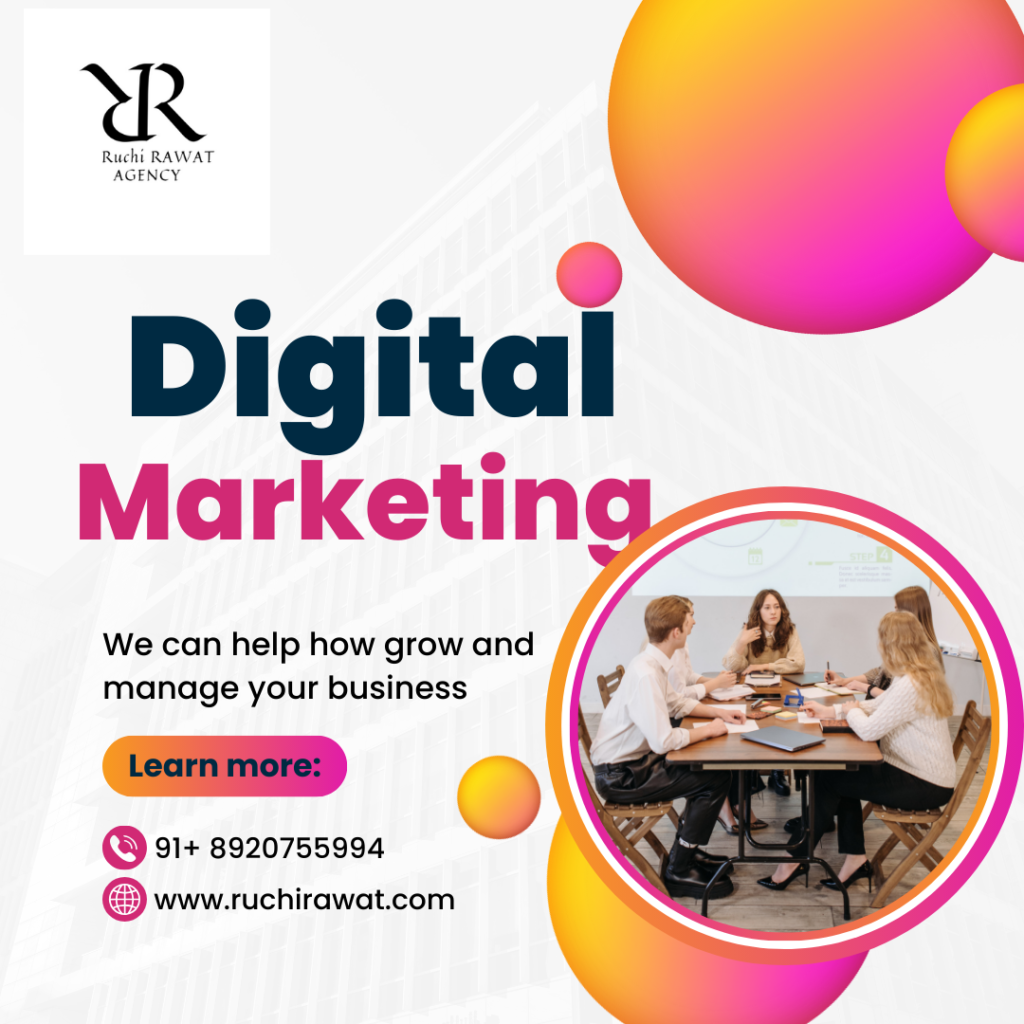Digital marketing: What is it?

Key Components of Digital Marketing
Any marketing initiative that makes use of an electronic device or the internet is referred to as digital marketing. Companies use digital platforms including websites, email, social media, and search engines to communicate with both present and potential clients. This type of marketing aims to drive meaningful relationships, foster brand loyalty, and create an engaging customer experience in addition to product promotion.
- Search Engine Optimizing : Optimizing your website to rank higher on search engine results pages (SERPs) will increase organic (unpaid) traffic. This process is known as search engine optimisation, or SEO. To make sure your website is search engine friendly, it entails keyword research, content creation, and technological enhancements.
- Content Marketing: When it comes to digital, content is king. In order to draw in and keep the interest of a precisely defined audience, content marketing entails producing and disseminating worthwhile, timely, and consistent material. Content like as eBooks, movies, infographics, and blog entries are frequently utilised to establish authority and trust.
- Social Media Marketing: Social media sites like as Facebook, Instagram, Twitter, and LinkedIn are effective resources for connecting and interacting with your target audience. In order to increase brand exposure and generate traffic, social media marketing entails producing and disseminating content, placing advertisements, and interacting with followers.
- Email Marketing: Email marketing is still one of the most successful digital marketing platforms, even with the development of social media. Sending customized messages to your audience through email marketing helps you cultivate leads, advertise products, and forge relationships with clients.
- Pay-Per-Click (PPC) Advertising: In the pay-per-click (PPC) online marketing approach, marketers are charged a fee each time one of their adverts is clicked. The most well-known PPC platform is Google Ads, which lets companies bid on ad placement in sponsored links within search engines.
- Affiliate Marketing: Paying commissions to third-party affiliates for bringing in traffic or sales to your website is part of this performance-based marketing strategy. Businesses benefit from increased exposure and sales, and affiliates receive compensation for successful referrals. It’s a win-win situation for all parties.
- Influencer Marketing: A component of this performance-based marketing strategy includes paying commissions to outside affiliates that drive traffic or sales to your website. Companies gain from more visibility and sales, and affiliates get paid when effective recommendations are made. There is mutual benefit for all involved.
The Future of Digital Marketing
Digital marketing is evolving along with technology. The future of digital marketing is being shaped by cutting-edge developments like voice search optimisation, interactive content, and artificial intelligence (AI). In the ever-evolving digital market, companies who remain ahead of these trends and consistently modify their strategy will prosper.